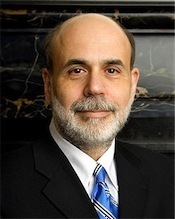Matthew Yglesias's Blog, page 2526
October 18, 2010
Endgame
Decades longer than you:
— US industrial production unexpectedly falls.
— Rare earth minerals are "relatively abundant" and not actually rare.
— An optimistic look at the Portland Trailblazers.
— I agree with Atrios, the DC height limit makes some buildings taller than they otherwise would be.
— What's the matter with Pennsylvania.
Liz Phair, "Explain it to Me".


Godot Never Shows Up
I probably should just save this idea for my Slate job application, but I think "spoilers" aren't nearly as bad as people make them out to be. I knew Macbeth dies in the end before I read the play, I knew that Troy falls because they stupidly let a wooden horse full of Greek soldiers into the city walls, and I knew that things weren't going to work out for Anna Karenina and Count Vronsky.
Foreknowledge doesn't ruin these works or any other work of quality. If anything, it's the reverse. If you look at a well-constructed story—be it Season 3 of the Wire or the Great Gatsby or whatever you like—I think you'll find that knowledge of where things are headed enhances your ability to appreciate the mastery with which the story has been put together.


The High Price of Short Buildings

(cc photo by cbowns)
Dion Haynes writes for the Post that office rents in downtown Washington, DC are now higher than in Manhattan. Normally what happens when you get high rents is that people respond with bigger buildings. Which is why Manhattan has such big office buildings. DC office buildings, by contrast, are quite short. So are developers working on responding to the high demand by building taller buildings? Of course not! Taller buildings are illegal in Washington DC.
Consequently, instead of building up real estate developers in the DC area build "out," putting more and more jobs in the suburbs.
I know many people enjoy the aesthetic results of this policy. I disagree, but leaving that aside I think few supporters of the short buildings policy really appreciate the extent of the costs involved. Leave ecological issues aside. If a higher proportion of the area's office workers were in DC rather than the suburbs, then the volume of retail sales in the city would go up. That's more service-sector jobs for low-skill DC residents. That, in turn, means less demand for social service expenditures. It also means higher sales and income tax revenue. All of which means that social services could be more generous to those in need, with somewhat lower sales and income tax rates. The lower tax rates would make the city a more attractive place to live or do business, raising property values across the board.
It all sounds good to me. More generally, governments of growing municipalities need to understand that urban space is a hugely valuable commodity. Rules which mandate that the space be used inefficiently are extremely costly. Sometimes it's a price worth paying—you wouldn't want a city with zero parks—but there are limits to how much it makes sense to sacrifice for aesthetics.


Why The Fuss About Jack Conway?
I'm a little taken aback by how taken aback some people are over Jack Conway's hit on Rand Paul:
This ad has the virtue—not that common in politics—of being accurate. It also has the virtue of raising actual policy issues about the consequences of Paul's position on tax reform. It's true that the implication that unorthodox religious belief should disqualify one from office is ugly, but it's an implication that I think is extremely common in American politics. Joe Lieberman ran around the country 10 years ago slandering atheists and Mitt Romney did much the same in his effort to make Mormonism acceptable to the GOP's Christian base voters.
At any rate, what I find most striking about the Conway-related outrage is the lack of outrage over the torrent of xenophobic China-bashing ads we've seen from candidates of both parties throughout this campaign season. Accusing one's opponent of transferring economic opportunities from the United States to China (sometimes India) is a major feature of a huge number of 2010 campaigns. These attacks tend to be factually misleading, and also promote the widespread by definitely wrong misconception that the US and China are engaged in a zero-sum contest for prosperity. What's more, even granting the factual and analytic premises of these ads their ethics is clearly mistaken. If it was the case that the US and China face zero-sum competition for economic resources, transferring resources from rich America to poor China would be morally praiseworthy.


Centralization and Automation
Tim Fernholz the "compelling Hayekian argument about underwriting efficiency and financial regulation" from Amar Bhidé that Tony Jackson summarized yesterday for the FT, though Fernholz says he doesn't agree with all the conclusions Bhidé draws.
I don't think I find the analysis very compelling:
The head of Intel, for instance, can run an empire of semiconductor plants, because the product is centrally determined and raw materials consistent. But can the head of a big bank run an empire of bank branches in the same way?
Plainly not, Prof Bhidé says. Issuing a mortgage or a small business loan involves precisely the kind of on-the-spot knowledge and judgment Hayek described. But the banks have centralised those judgments. Why is that?
Because that is where the growth is. Proper banking requires an army of trained workers. That slows things down. But if you reduce everything to mechanistic models and harness them to modern computing, it goes turbocharged.
I dunno. It used to be that proper shirt-making required on-the-spot knowledge and judgment. But then apparel manufacturers found ways to centralise production and generate a finite number of standardized sizes. Custom made products are still superior in quality, but the lower prices made possible by standardization and mass production "turbocharged" the industry and produced large gains in human welfare. Why shouldn't lending be the same? Well:
Misallocation of capital, meanwhile, is inevitable. Capital goes to sectors that can be mechanised. Mortgages qualify, so resources are poured into housing. Small business loans are less amenable, so small business lending shrivels.
Again, this strikes me as entirely typical of how the entire economy works. The system of interchangeable parts for mass production didn't arrive suddenly from heaven and strike every industry. It was worked out in specific contexts that made the production of certain goods much more efficient. That led capital to flow to successfully automized lines of work which, crucially, inspired people to work on successfully automating other lines of endeavor. It's not as if we just said "well, this works for firearms but not for sewing machines so let's forget about sewing machines." Instead decades of work went into figuring out how to mass produce different kinds of things. But it wasn't "misallocation of capital" for capital to flow initially to fields of endeavor where efficiencies had been discovered—it was natural.
Meanwhile, I don't think there's anything mysterious about why a disproportionate quantity of capital flows into housing in this country—we have all these policies aimed at encouraging capital to flow into housing. That's what Fannie and Freddie and the home mortgage interest tax deduction are for. We can and should have a debate about whether this constitutes a misallocation of resources (I agree that it was and is) but if it is it has to be tackled directly.


Partisanship Matters Most
Via John Sides, an elegant depiction from Gallup of why you shouldn't take people's explanations of what's bothering them at face value:
Democrats and Republicans alike feel threatened by the idea of a government controlled by the other political party.


Chinese Discomfort With Aggressive Monetary Stimulus Highlights Its Virtues
Catherine Rampbell observes that though market reaction to growing signs that the Federal Reserve will take action to boost growth has largely been positive, the editorial line out of Xinhua is quite different.
The Chinese government's discomfort with monetary stimulus is understandable. Monetary stimulus plus Chinese currency policy will equal an undesirably large amount of inflation in China. That means that in order to avoid an undesirably large amount of inflation, Chinese leaders will need to engage in a more rapid currency readjustment than they want to. That, however, merely underscores that unilateral monetary action is the right way for the US government to handle our concerns about China's currency policy. We don't need to threaten them, or bribe them, or cajole them, or go to "currency war" or anything. What we need to do is to adopt monetary policies that are appropriate for our economic situation. The Chinese will learn to deal with it, and in the longer term we'll all be better off.


Samuelson Worries Fed Action Might Cause Economic Growth
Robert Samuelson has a really unique take on American politics, which generally holds that all efforts to improve anything are doomed and therefore we should adopt conservative policies for reasons that are never explained. Today, for example, he says that the Fed probably can't spark growth because if they succeed at sparking growth, we might end up with too much growth:
But if all the cheap money spurs much higher economic growth, many of these reserves will turn into loans and raise the specter of higher inflation — "too much money chasing too few goods." The Fed would then have to withdraw or neutralize the added money through higher interest rates.
It's of course true that if we succeed in ending the current disinflationary cycle that then at some future point we'll face different problems and the Fed will need to change policies. But so what?


Tea Partiers and Entitlements
Ross Douthat says liberals are propounding myths about the tea party movement, but he's willing to give some credence to one complaint:
THE TEA PARTIERS ARE HYPOCRITES. That is, they say they're for small government, but they don't want anyone to touch their Social Security and Medicare. This is by far the most persuasive liberal storyline. Poll after poll suggests that Tea Partiers are ambivalent about trimming entitlements, even though that's the spending that will ultimately send either deficits or taxes through the roof.
On the other hand, some Tea Party-backed candidates have been refreshingly courageous on this front — whether it's Rand Paul telling Fox News that he'd support higher deductibles for seniors, or Buck apologizing to Michael Bennet, his Senate opponent in Colorado, for Republican demagoguery on Medicare.
I'm not sure this one is so difficult to puzzle out. We recently had a major piece of legislation—the Affordable Care Act—that involves some increases in spending on health care for non-seniors, some reductions in spending on seniors, and some increases in taxes. According to the Congressional Budget Office, it will reduce the deficit. According to many conservative critics, the CBO score isn't credible.
So now let's imagine that John McCain, Susan Collins, Olympia Snowe, Scott Brown, Robert Bennett, and Lindsay Graham had joined forces at a crucial juncture in the debate and said to Barack Obama and Harry Reid, "guys—we'll vote for your bill but only if you agree to tweak the financing mechanism. Make the spending increases a little less generous, make the tax hikes less dramatic, and pare deeper on Medicare." Then imagine Obama had cut the deal. Liberals, obviously, would generally have been displeased with this just as they were displeased with a lot of Obama's real world dealmaking. But at the end of the day, it's a universal health care bill. And tea partiers reaction to this would have been what? To back off their criticisms of Senator Bennett? Or to doom John McCain in his race against JD Hayworth? The latter seems an awful lot more plausible to me than the former. In general I don't here "we had a Democratic President interested in cutting Medicare, but the Republican establishment refused to try to cut any kind of deal with him" as figuring prominently in the grassroots conservative critique of the party leadership.


How Bias Works

(cc photo by adiything)
It's pretty clear that most bias happens at an unconscious level and that things like racial and gender bias are much more pervasive than we'd like to believe. Check out some of the implicit association tests available online if you don't believe me. But some of the details of how this plays out are downright scary. Consider the medical example cited in Shankar Vendatam's column on unconscious bias:
If you ask people whether men and women should be paid the same for doing the same work, everyone says yes. But if you ask volunteers how much a storekeeper who runs a hardware store ought to earn and how much a storekeeper who sells antique china ought to earn, you will see that the work of the storekeeper whom volunteers unconsciously believe to be a man is valued more highly than the work of the storekeeper whom volunteers unconsciously assume is a woman. If you ask physicians whether all patients should be treated equally regardless of race, everyone says yes. But if you ask doctors how they will treat patients with chest pains who are named Michael Smith and Tyrone Smith, the doctors tend to be less aggressive in treating the patient with the black-sounding name. Such disparities in treatment are not predicted by the conscious attitudes that doctors profess, but by their unconscious attitudes—their hidden brains.
There are a lot of quality issues in our health care system beyond the basic access issues, and in an increasingly diverse society this sort of thing is not helping to resolve them.


Matthew Yglesias's Blog
- Matthew Yglesias's profile
- 72 followers






